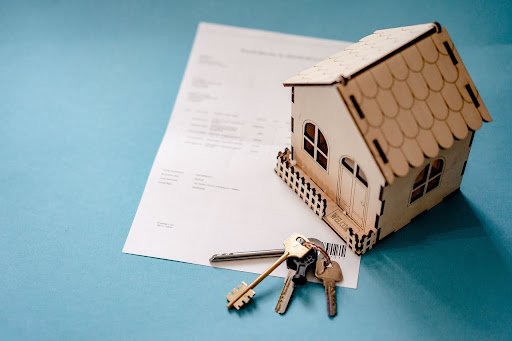When we think of borrowing money for rental property financing, it’s almost always in the context of a mortgage loan. Whether it’s a residential rental mortgage or commercial debt, the structure is the same — the lender fronts 70-80% of the purchase price, secured by a lien on the property, and the real estate investor must come up with the other 20-30% of the purchase price as a down payment, in addition closing costs.
But what if you could borrow that money too? Real estate investment companies are businesses, and businesses are eligible for working capital loans and business lines of credit? Could you get an unsecured loan for fix and flip deals? Cover the down payment on a rental house or commercial building with a business loan?
The short answer is “Sometimes.” Strict rules apply to what types of business credit you can use to finance the down payment. However, there is a much more robust pathway for investors to use business loans, even unsecured loans, for fix and flips — a strategy that Munoz Ghezlan Capital helps investors execute every day. Book a complementary call with one of our strategists to learn how we do it.
Let’s explore the rules of using business credit for down payments on real estate investments — what it can do, what it can’t do, and how real estate investors can effectively use business credit to scale their business.
Understanding Business Credit and How It Works
Business credit is similar to personal credit in many ways — loans are approved based on the creditworthiness of the borrower. In the case of business credit, the borrower is a business instead of an individual
However, businesses have their own credit profiles and scores. Whereas the major credit bureaus Equifax, Experian, and TransUnion track the personal credit of every American, different bureaus — Dun & Bradstreet, Experian Business, and Equifax Business — track the creditworthiness of businesses.
In addition to being tracked by different entities, business credit depends on different underwriting criteria. Personal credit depends on the borrower’s income, assets, payment history, and current debt balances carried.
In the case of business credit, lenders add to the picture years in business, revenue, cash flow, accounts receivable, and the type of business.
Note that many business loans require a personal guarantee on the part of an individual borrower, and the personal credit of the guarantor will play a role in the approval process.
Types of Business Loans
Business loans fall into two broad categories:
- Working Capital Loans. These are lump-sum loans, often with fixed interest rates at least for the early years of the loan. They usually have fully-amortized repayment terms structured into predictable monthly payments.
- Business Lines of Credit. These are revolving credit lines (similar to a credit card) with variable interest rates, giving the borrower the option to draw as much or as little funding out of the line of credit (up to the credit limit) and only pay interest on the balance carried. In addition to other rules, business lines of credit must be reviewed by the lender and renewed, usually on an annual basis.
The Role of the SBA
The US Small Business Association (SBA) insures part of or all of the balance of certain business loans for qualified borrowers, reducing the risk to the lender and enabling them to offer higher balances, lower interest rates, and better terms.
Can You Use Business Credit for a Down Payment?
The biggest obstacle real estate investors are likely to encounter to using business credit for down payment and closing cost funding are clauses that lenders include in their loans.
Put yourself in the shoes of the lender — they want their borrowers to have “skin in the game.” The thought of losing the down payment gives the real estate investor the incentive to not let the property fail. If they borrowed every dime used to purchase the property and unexpected expenses arise, it may be an attractive option for the borrower to simply walk away from the property, leaving the lender with a troubled asset on their balance sheet.
To reduce this risk, mortgage lenders usually include a clause in the mortgage note stating that down payment funds must be non-borrowed funds.
Legal Implications of Using Business Credit for Down Payment
These clauses in the mortgage contract are not toothless. If a real estate investor tries to pass off loaned down payment funds as a “gift” or other non-borrowed, that is considered mortgage fraud, which carries serious criminal penalties. Mortgage lenders will attempt to trace the source of down-payment funds, giving extra scrutiny to sudden influxes of cash into the investor’s coffers.
The “Seasoning” Requirement
Many mortgage loans include a “seasoning requirement” for the down payment funds, meaning you must verify that the funds have been sitting in your account for a specified period of time. For rental property mortgages, the seasoning period of down payment funds is usually 60-90 days. Any sudden appearance of large sums of cash in the account must be explained, its source verified. Failure to do so could result in denial, even accusations of attempted fraud.
However, the seasoning period does not mean you can take out a business loan, wait 90 days, and then use the funds as your down payment scott-free. The seasoning period is an approval hurdle, not a loophole. You are still under the obligation to disclose the source of your down payment funds to the lender. If the lender discovers you borrowed the money a few months ago and tried to pass it off as a gift, savings, inheritance, or any other source, mortgage fraud laws still apply.
The “Secured Loan” Exception
There is an exception to the rule against using non-borrowed funds as a down payment on real estate. Many lenders and underwriters, including Federal mortgage bank Fannie Mae, offer a carve-out for secured loans. If your down-payment funds come from a secured loan backed by collateral, they may still be eligible for down-payment funding.
Under these circumstances, you still have skin in the game for your rental property financing. You may not have staked your own savings on the down payment, but you still stand to lose other assets if you simply walk away from the deal and default on both your mortgage loan and the secured loan.
Exceptions to the Secured Loan Exception
While secured loans may be acceptable as a source of down payment, this isn’t absolute. Take invoice financing and merchant cash advances. While these loans are technically “collateralized” — by your accounts receivable in the case of invoice financing, by your merchant account balances in the case of merchant cash advance — these loans are usually not acceptable for use in real estate financing.
The reason is that these loans are short-term, high-interest, high-risk, and the collateral isn’t considered an “owned, verified asset” in the possession of the borrower.
Funding Options: How to Leverage Business Credit for Real Estate
If you want to finance rental property with business credit, you have a few kosher options that won’t run you afoul of your lender or the law.
Secured Loans
While you cannot use unsecured loan proceeds to make the down payment on a real estate acquisition, you can use secured loans. Remember, invoice financing and merchant cash advances are not eligible, but you can use funds collateralized by other assets that you actually own — for example, a business mortgage on other real estate investments, a loan secured by equipment or vehicles, even a borrower that puts up as collateral cash reserves or other liquid assets.
Keep in mind that the loan balance must be justified by the asset value. If you manage to take out a $500,000 loan secured by $400,000 in assets (which most lenders won’t agree to anyway), expect the lender to do their homework and catch you.
Secured Lines of Credit
Many business lenders offer secured lines of credit. You can use funds from a secured line of credit to make a down payment on a rental property — again, provided that the collateralized assets justify the loan balance.
Cross-Collateralized Loans
Some business lenders and commercial mortgage lenders offer “cross-collateralized loans,” which use as collateral the subject property and other assets you might own — for example, other investment properties.
What About Borrowing Money for Fix & Flip Deals?
If you are considering borrowing money to purchase a fix-and-flip opportunity, it gets more interesting. If you are using a conventional mortgage, the same rules apply. However, no hard-and-fast rules apply to hard money loans or private loans, a key source of funding for fix-and-flip deals.
Your lender may require you to use your own funds for any down payments that might apply, but hard-money and private lenders don’t have the need to conform to the guidelines of Fannie Mae or Freddie Mac, a key guardrail to the conventional mortgage lending business.
In fact, hard-money and private lenders may lend you 100% or more of the purchase price, giving you a true no-money-down solution all in one deal. NOTE: whether or not you get access to such sweetheart terms depends largely on your relationship with the lender and/or your track record of success on similar deals in the past. If you’re a first-timer, your lender will usually want you to have some skin in the game. But even if they want a down payment, they may not require you to use non-borrowed funds for fix-and-flip down payments (though this isn’t guaranteed).
Working Capital Loans for Fix-And-Flip Deals
Moreover, the down payment isn’t the only way you can use unsecured loans for fix-and-flip deals. Remember, acquiring the property is only the first step of a fix-and-flip project. Don’t forget the “fix” in fix-and-flip. You will almost always need to invest money into repairs, renovation, and rehab to maximize your profit from the investment.
Where the money to finance the rehab comes from is entirely up to you. Nothing is stopping you from taking out a working capital loan or working capital line of credit to fund the rehab.
Keep in mind that an established track record matters here too. Working capital lenders, including SBA lenders, take into account years in business, revenue, cash flow, and the credit score of your business when underwriting these loans. This makes it, again, a challenge for first-timers. But it is absolutely doable.
Munoz Ghezlan regularly helps fix-and-flip investors acquire up to $500,000 in unsecured credit — sometimes with 0% interest — to finance the rehab of their fix-and-flip investments. This is especially useful when an unexpected or emergency expense arises in the project that you don’t have cash reserves to cover. A quick working capital loan can save the investment.
Combining Business Credit with Rental Property Financing
While you usually can’t use business credit for the down payment on a rental property, there’s no rule against using business credit to finance the ongoing expenses of a rental property. If you want to preserve your cash reserves for the down payment on your next property, you can consider taking out a working capital loan to cover those expenses and preserve your nest egg for scaling purposes.
Again, all the qualifications for working capital loans apply, including the longevity of your business, cash flow, revenue, and business creditworthiness.
How to Build and Strengthen Business Credit
To access business loans, you need a credit history for your business. If you haven’t put time and effort into this yet, here’s how to get started — or to continue the process if you already have started:
- Form an entity (LLC, corporation, etc.) for your business and acquire an EIN number.
- Open business checking and credit accounts. Use secured credit cards if you need to, keep the balances low, and always pay your bills on time.
- Register your new EIN with the business credit tracking bureaus (Dun & Bradstreet, Equifax Business, Experian Business, etc.)
- Build vendor trade lines and always pay on time.
- Gradually increase your credit limits and diversify your credit sources.
Risks, Limitations, and Compliance
As attractive as it may be to use business credit for down payment, closing costs, or other real estate investment expenses, make sure to understand the risks, limitations, and compliance burdens that come with adopting this strategy.
Compliance
As mentioned above, lenders and regulators have strict rules against using unsecured borrowed funds as down payments. Attempting to circumvent these rules could result in rejection of your application, accusations of mortgage fraud, and other serious liabilities.
Over-Leverage
There’s a reason mortgage lenders don’t want to lend 100% of the purchase price in most cases. Over-leveraging a real estate investment exposes you to the risk of market downturns leaving you upside-down in the property (property is worth less than you owe on it), and unable to cover your debt service, putting you in danger of foreclosure.
Variable Interest Rates
Many business loans, especially lines of credit, have variable interest rates. This makes it hard to predict your cash flow and could stick you with unaffordable debt service payments if indices like the prime rate or SOFR make a big move to the upside.
Mixing Business and Personal Debt
Mixing business and personal debt puts you at risk of “piercing the corporate veil” — that is, forfeiting the limitations of your personal liability for the activities of the investment. If the investment fails or you face a lawsuit, you could become personally liable for the consequences, your personal assets at risk in a way that they would ordinarily be shielded from by using an LLC, corporation, or limited partnership.
Tax Implications
Interest on business debt is usually tax-deductible — but you have to be able to trace the loan proceeds to an identifiable business use and keep your records clean. Non-mortgage debt invested into a property also impacts the boot calculation of any future 1031 exchange — less of your sale proceeds may be protected from taxation. Always consult a tax professional familiar with real estate financing to understand the tax implications of any loan you might take out to invest in your deal.
Bottom Line
It may be a dream scenario to finance your entire real estate deal with “other peoples’ money,” but serious restrictions do apply. Most importantly, you can’t use unsecured borrowed funds for down payments on a residential or commercial mortgage, and serious penalties attach to any attempt to leapfrog this rule.
However, there are workarounds. You can use secured debt to fund your down payment and closing costs (with reasonable limitations) and you can use business loan proceeds to acquire working capital for the operating expenses and capital expenditures on your fix-and-flip or rental deals. As long as you understand the risks and limitations, it’s a perfectly viable strategy.
Munoz Ghezlan Capital helps real estate investors access $50,000-$500,000 in unsecured loans, sometimes with 0% interest, to fund their real estate investments. If you need working capital fast, or even if you think you might in the future, our team of Working Capital strategists is at your disposal. Book a call with a strategist today. We can help get you out of a tight spot, plan for the future, and turn troubled deals into cash cows.
















